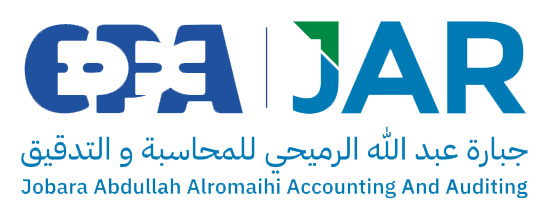Understanding the Financial Audit Process in Qatar
A financial audit is a systematic examination of your company’s financial statements, accounting records, and internal controls to ensure accuracy, compliance, and transparency. In Qatar, audits are conducted in accordance with International Standards on Auditing (ISA) and local regulatory requirements. The process of conducting a financial audit in Qatar begins with understanding these standards.
Key Objectives of a Financial Audit:
✔ Verify the accuracy and completeness of financial statements
✔ Assess compliance with Qatar’s tax laws and financial regulations
✔ Evaluate the effectiveness of internal controls
✔ Provide stakeholders (investors, regulators, banks) with assurance about financial health
The 5 Key Stages of a Financial Audit
1. Planning & Risk Assessment
- Auditors review your business structure, industry risks, and past financial reports. The planning stage is critical for a successful audit in Qatar.
- They identify high-risk areas (e.g., cash transactions, revenue recognition).
2. Testing Internal Controls
- Auditors assess whether your company has proper checks and balances to prevent errors or fraud.
- Weak controls may lead to extended testing or recommendations for improvement. An essential part of enhancing controls is during audits in Qatar.
3. Substantive Testing of Transactions
- Auditors examine supporting documents (invoices, bank statements, contracts).
- They verify revenue, expenses, assets, and liabilities for accuracy, a critical step in financial audits in Qatar.
4. Final Review & Reporting
- Auditors compile findings and discuss adjustments or discrepancies with management.
- A final audit report is issued, stating whether financial statements are fairly presented. This is a key conclusion in any audit carried out in Qatar.
5. Post-Audit Follow-Up (if needed)
- Some audits require corrective actions (e.g., updating records, improving controls).
- Businesses may need to resubmit documents for verification, especially critical in audits of companies in Qatar.
Common Challenges Businesses Face During Audits
🚨 Missing or Incomplete Records – Unorganized receipts, unsigned contracts, or lost invoices delay audits.
🚨 Weak Internal Controls – Lack of approval processes or oversight increases fraud risks.
🚨 Outdated Accounting Systems – Manual bookkeeping leads to errors and inefficiencies.
🚨 Untrained Staff – Employees unfamiliar with audit procedures cause unnecessary delays.
How JAR Audit Ensures a Smooth & Stress-Free Audit Process
At JAR Audit, we help businesses in Qatar prepare for, manage, and successfully complete financial audits with confidence. Successfully completing audits is crucial for businesses in Qatar.
Our Audit Support Services Include:
✅ Pre-Audit Readiness Assessment – Identify and fix gaps before auditors arrive.
✅ Documentation & Compliance Review – Ensure all financial records meet audit standards.
✅ Internal Control Optimization – Strengthen processes to prevent future issues.
✅ Audit Representation & Liaison – We communicate with auditors on your behalf.
✅ Post-Audit Action Plan – Implement improvements for better financial management.
Why Proper Audit Preparation Matters
✔ Avoid Costly Penalties – Non-compliance can lead to fines or legal issues.
✔ Build Investor & Lender Confidence – Clean audits enhance credibility.
✔ Improve Financial Transparency – Identify inefficiencies and strengthen reporting.
✔ Ensure Business Continuity – Smooth audits prevent operational disruptions during financial audit processes in Qatar.
Partner with JAR Audit for a Hassle-Free Audit Experience
Don’t let audit stress derail your business. JAR Audit’s team of certified auditors and financial experts ensures your company is fully prepared, compliant, and audit-ready—saving you time, money, and headaches. This preparation is crucial for undergoing a successful financial audit within Qatar.
📞 Contact JAR Audit today to schedule a consultation and streamline your next financial audit in Qatar.








